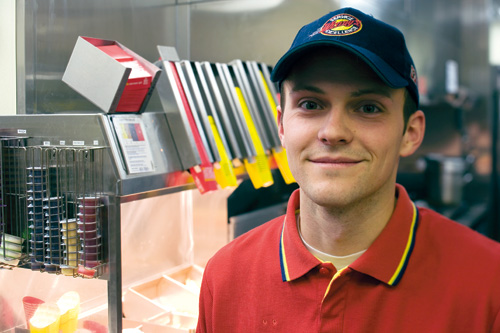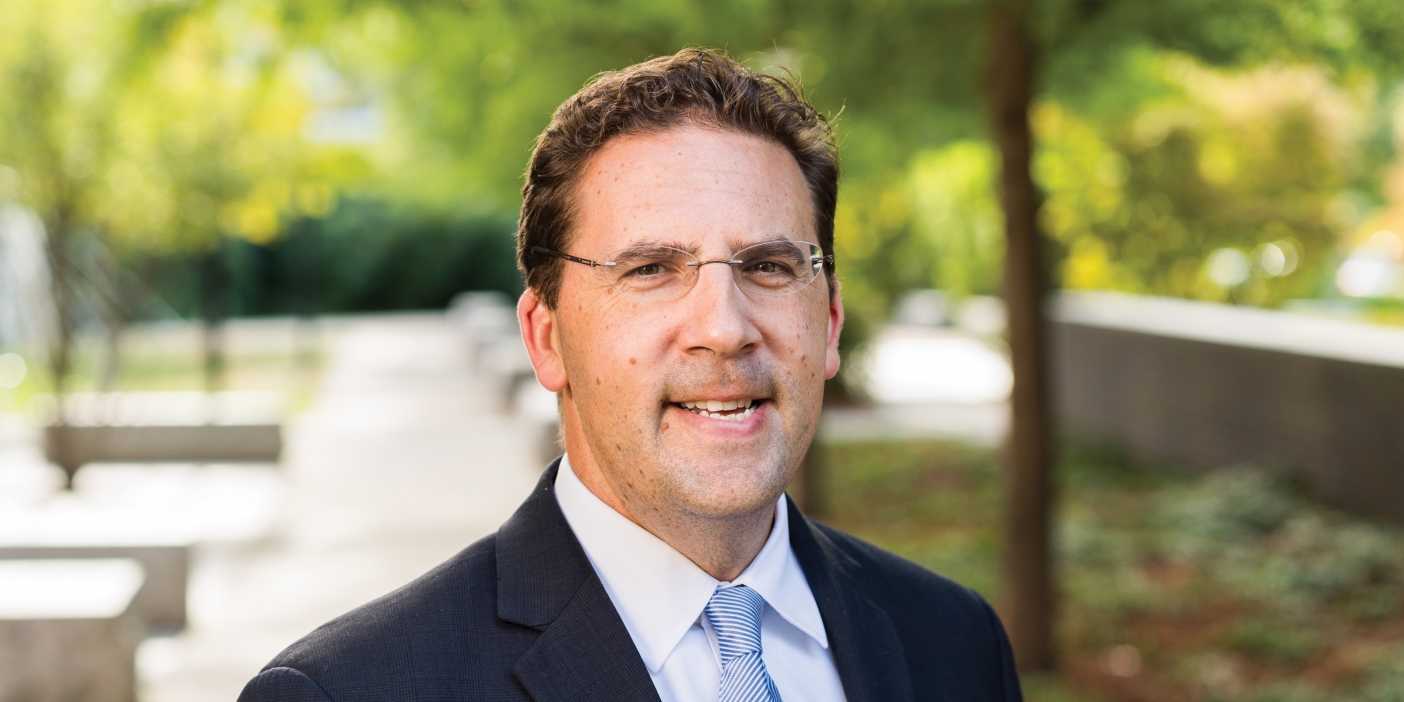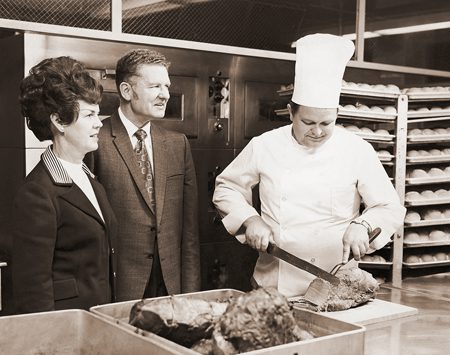By Darrel B. Harker, ‘74
Not all of my education at BYU came from the classroom. One of my best lessons came while I was working for the BYU Air Conditioning Department. This department had a staff of about 10 professionals who relied on student workers for support. If there was a dirty job to be done, we would be in the middle of it. I will never forget the itchy fiberglass filters we had to install. I also vividly remember the claustrophobic feeling I got when I tried to breathe through the sweaty masks we wore while cleaning chemical sediment from roof-top heat exchangers. People were not exactly lining up for this job, but for me it was a great learning experience.
One morning at the top of the Wilkinson Center, my partner Paul and I were cleaning a unit that was covered with layers of white, dusty chemical. Paul was the kind of guy that threw his heart into everything he did. He wanted to keep his mission language (American Sign Language) and was constantly making motions with his hands as he talked. It was as though he expected me to get something extra from his conversation if he translated everything he said. He was equally enthusiastic about his work, and chemical flew everywhere as his wire brush flicked dry sediment off pipes.
The unit we were working on was just inches away from the restaurant that looked over campus. After two or three hours of work, we were ready for a break. We got off the roof, slipped past the restaurant, and went down the hall to the washroom. We laughed as we looked in large mirrors at white copies of ourselves. We looked more like kids that had been playing in a flour bin than hardworking university students. The laughing stopped when we left the washroom. A smartly dressed woman stood outside the door, and her demeanor let us know that the fun was over. I don’t remember much of what she said, but I’ll never forget the sting of her words. I soon realized that she was responsible for the restaurant and was not impressed with the dusty student workers who had just wandered across her red carpet. White footprints followed us to the washroom, and even though we had freshly washed faces, our dusty clothes bore witness that we were responsible for the mess that sparked her temper.
A few weeks later Paul and I were cleaning sludge from an air conditioning unit located on the loading dock of another campus building. The mess that we had to clean was a slurry of chemical and grit the consistency of runny porridge. Paul shoveled it into buckets, and I carried the buckets to the edge of the loading dock where I dumped the ugly stuff into a large bin.
On one of my trips, I noticed a man out on the dock getting a shipment ready. He was close to the bin and turned my way as I dumped several gallons of sludge into the container. I must have put more effort into the exercise than usual because the sludge went down into the bin and up the other side, a gob of it continuing through the air directly towards the dock worker. I winced as it splattered his face and clothes. I don’t know which of us was more astonished.
I was ready for the worst and fully expected a repeat of my restaurant experience. This time, however, things were different. The man hardly flinched. He accepted my apology with a forgiving smile and quickly turned to get back to his work. As he walked away I noticed that his gait was jerky. Braces on his legs told a story of health problems and trials. I couldn’t help but wonder if those trials gave him the strength to control his tongue and to handle my blunder in a way that was so different from how I had previously been treated.
Since that day on the dock, I’ve often felt the sting that comes from others’ mistakes. On those occasions, where it’s me that gets mud on my face, I think about the man in the braces. I also think about the restaurant manager and try to respond like the one of those two people that left the deepest impression on my soul.
While at BYU I had professors who were world renowned. One was the first to make artificial diamonds, while another wrote a textbook that was used in many of the prominent universities of that day. They were impressive, and I will ever be grateful for the education they gave me. I am equally grateful for the education I received from the man on the dock. I never knew his academic achievements or even his name. I was in his classroom for only a minute, and he affected my life as deeply as any teacher I ever had.
Education is not always found in the classroom. Often it comes as we bumble our way through life. At BYU I thought I was earning a degree in agronomy. I got that degree, but I can see now that I got much more because of my experiences in the Air Conditioning Department. Working there gave me the opportunity to experience life, to meet interesting people, and even to learn some American Sign Language. ![]()
Darrel B. Harker is a barrister and solicitor living in Sherwood Park, Alberta, Canada. Personal essays from BYU alumni are accepted as submissions for the After All. Essays should be between 700 and 1,000 words in length and may be sent to Brigham Young Magazine, 207 UPB, Provo, Utah 84602 (e-mail: bymag@byu.edu).









